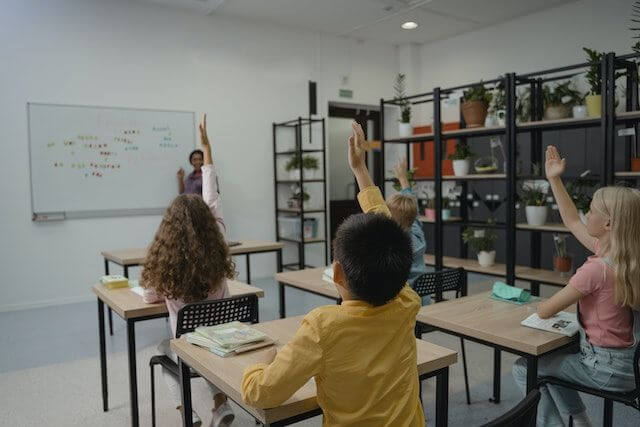Learning English in summer during the holidays
Learning English in the summer is an opportunity to improve a child’s skills, however, we must bear in mind that the holiday months are a period of rest, so it is important that the learning methods are different.
The importance of continuing to learn during the holidays
Learning is based on a process of study in which the pupil assimilates knowledge, which will form the basis for further development. If this process is interrupted, it will be more difficult to recover the learning routine. On the contrary, if during the summer we review what we have learned during the course, the student will be able to consolidate his or her knowledge and perfect his or her abilities.
It is very important that the child does not perceive learning English during the summer as a punishment or a responsibility. English camps, conversation classes and other similar activities favour a playful environment, different from the learning that takes place in the classroom.
English activities during the summer
There are many alternatives to continue learning English during the summer, these are some of the most fun ones.
English camps
Camps include all kinds of activities, from sports to walks to discovering natural environments. English camps use English as the language of instruction, and therefore encourage communication in English.
Traditional education systems do not focus their programmes on the practical side of the language, which is a mistake. At Laude San Pedro International College we understand the value of communicating in English from the very first years of school, which is why we are aware of the advantages for students to attend camps where they can express themselves in English on a daily basis.
Immersive experiences in English-speaking countries
Another very effective alternative is the immersive experiences that take place in the UK and other English-speaking countries.
Learning a language not only has linguistic implications, but also provides an insight into a different culture. Through summer trips to the UK, a student can experience British culture at first hand and improve their language skills.
English workshops during the summer
Another alternative is English workshops during the summer. These workshops can include activities related to art, science in a practical sense or sport, with an emphasis on the use of English.
The workshops help to improve the communicative skills of the child who attends this type of summer course. The activities are carried out together with other children, who participate in activities that may include cooking classes, theatre, nature activities, etc.
Activities at home
During the summer months they can also learn English at home. It is important that the activities we carry out have a playful component, which motivates them and allows them to learn in a suitable environment.
Stories, films or art activities in English will allow them to continue learning English.
Developing the communicative part during the summer
The possibility of sharing these activities with other children helps to improve the communicative and perceptive part of the language.
Obviously, learning a language has a memorising component, which is carried out in the classroom. Learning vocabulary or the syntactic structures of English is fundamental, but it is also important to be able to express what has been learnt in a practical way. Learning English in the summer allows us to focus on the communicative values of the language, through interpersonal activities shared with other children of the same age.
Speaking English with other children also facilitates vocabulary learning. At an early age, a child is able to develop communication skills naturally, without the effort it takes for an adult to communicate in another language. Summer activities are perfect for children to be able to express themselves continuously in English, and at the same time maintain the essential learning routine during the school year.
Learning English through play during the summer
Many of the communication skills that we acquire during our early years are learned unconsciously, the simple fact of listening to the people around us, allows us to learn to interpret and pronounce the first words of our mother tongue, the same learning occurs with other languages.
English games, for example through Apps, get a child to adapt his or her ability to actively listen to English, in this way, the brain learns to interpret this language in the same way as the mother tongue.
If a child between the ages of 2 and 12 has the opportunity to listen to a second language on a daily basis, he or she will soon assimilate the structures of the language and will be able to memorise a wide range of vocabulary.
Games in English during the summer also help to reinforce what has been learnt during the course, especially if the processes are interactive.
In this case we are not looking for a qualification, nor is prior preparation necessary, the child simply interacts with a digital support, overcoming small tests related to the language.
Summer Camp at Laude San Pedro International College
At Laude San Pedro International College we offer our students the possibility to continue learning during the summer, through an activity that they will remember forever, the Laude Summer School.
In our summer camp, children from 3 to 12 years old will not only be able to practice English intensively, but they will also enjoy playing sports, cooling off in our water inflatables, practising artistic activities, cooking in our Master Chef challenge and developing technological devices.
This is the perfect opportunity to learn English in a fun-filled environment for the whole month of July. Our students work hard throughout the year to achieve their academic goals, now they have the opportunity to have fun and continue learning in a different way, at Laude Summer School.
Enrolment is now open, contact our school and make your booking.









